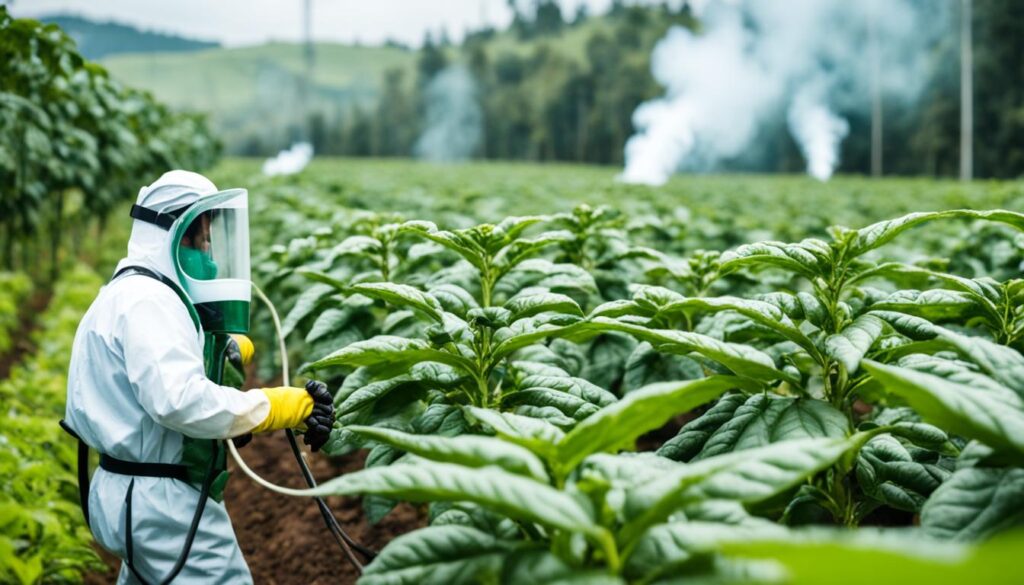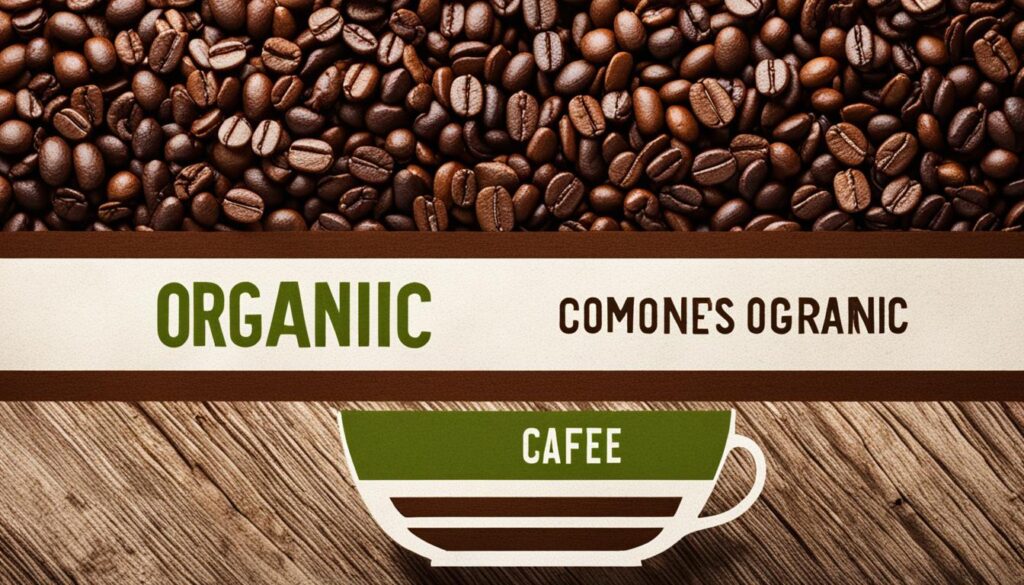Are you a coffee lover who’s curious about the differences between organic and non-organic coffee? If so, you’ve come to the right place. In this article, we’ll explore the fascinating world of organic coffee and how it compares to regular coffee. From farming practices to health benefits, we’ll uncover the unique characteristics of each type. So grab a cup of your favorite brew and let’s dive in!
Key Takeaways:
- Organic coffee is grown using natural methods, while regular coffee is not.
- Organic coffee is USDA certified and follows strict organic farming practices.
- Drinking organic coffee can have health benefits, reducing the risk of certain diseases.
- Regular coffee is grown using pesticides and chemical fertilizers, which can be harmful to the environment and human health.
- Organic coffee offers a better taste profile compared to regular coffee due to its natural farming practices.
What is Organic Coffee?
Organic coffee is a type of coffee that is grown without the use of pesticides, herbicides, and fungicides. It is produced through organic farming practices that prioritize environmental sustainability and the health of both consumers and coffee farmers.
In order to be classified as organic coffee, it must be certified by the United States Department of Agriculture (USDA) as meeting their strict standards. This certification ensures that the coffee meets specific criteria for organic farming practices, including the use of natural fertilizers, the removal of weeds by natural means, and the avoidance of genetically modified organisms (GMOs) during the production process.
One of the key differences between organic coffee and conventional coffee is the way in which it is grown. Organic coffee is typically cultivated in partial shade, which protects the coffee plants from direct sunlight and provides a habitat for birds that help control pests that target coffee plants. This method promotes biodiversity and contributes to the preservation of ecosystems.
Here is an image that showcases the lush and thriving environment in which organic coffee is grown:
By choosing USDA certified organic coffee, consumers can enjoy their favorite beverage while supporting environmentally friendly farming practices and the well-being of coffee farmers. Organic coffee not only offers a delicious and flavorful cup, but also promotes sustainable agriculture and healthy living.
Benefits of Organic Coffee Beans
Organic coffee beans offer numerous health benefits due to their unique cultivation methods and natural composition. Since organic coffee plants are not exposed to harmful chemicals commonly used in non-organic coffee farming, they can thrive in a healthier environment, resulting in a higher quality product.
One of the key health benefits of organic coffee is its potential to lower the risk of various diseases. Drinking organic coffee has been associated with a reduced risk of certain types of cancer, including liver and colorectal cancer, thanks to its antioxidants and anti-inflammatory properties. Additionally, organic coffee consumption has been linked to a lower risk of developing type 2 diabetes due to its ability to improve insulin sensitivity.
Furthermore, organic coffee contains natural compounds that contribute to its therapeutic properties. The beans are rich in chlorogenic acid, a powerful antioxidant that helps protect the body against oxidative stress and inflammation. This natural compound has also shown potential in reducing the risk of Alzheimer’s disease and depression, promoting brain health and overall well-being.
Drinking organic coffee can significantly improve your health. It is packed with antioxidants, anti-inflammatory compounds, and other beneficial substances that contribute to disease prevention and overall wellness.
To understand the health benefits of organic coffee beans, let’s take a closer look at some of the natural compounds found in organic coffee:
| Natural Compounds | Health Benefits |
|---|---|
| Chlorogenic Acid | Potent antioxidant Reduces inflammation Protects against chronic diseases |
| Caffeine | Boosts energy levels Improves cognitive function Increases metabolism |
| Trigonelline | Antibacterial properties Reduces the risk of dental cavities Promotes oral health |
| Melanoidins | Antioxidant activity Contributes to organ health Supports the immune system |
The Health Benefits of Chlorogenic Acid
Chlorogenic acid is one of the most abundant natural compounds found in organic coffee beans. It is a powerful antioxidant that helps neutralize harmful free radicals in the body, protecting cells and tissues from oxidative damage. This natural compound has been associated with numerous health benefits, including:
- Reducing inflammation: Chlorogenic acid possesses anti-inflammatory properties that can help alleviate symptoms associated with chronic inflammation, such as arthritis, heart disease, and diabetes.
- Protecting against chronic diseases: The antioxidant activity of chlorogenic acid may reduce the risk of chronic diseases, including cardiovascular disease, certain types of cancer, and neurodegenerative disorders.
- Supporting weight management: Chlorogenic acid has been found to have a positive impact on metabolism, promoting fat burning and aiding in weight loss. It may also help regulate blood sugar levels, contributing to healthier body weight management.
By choosing organic coffee, you can benefit from a rich source of natural compounds like chlorogenic acid, contributing to your overall health and well-being.
What is Non-Organic Coffee/Regular Coffee?
Conventional coffee, also known as non-organic coffee, is grown using pesticides and chemical fertilizers, which can have detrimental effects on both the environment and human health. These farming methods contribute to pollution and can contaminate water sources. In addition, the use of chemical fertilizers and pesticides in conventional coffee production can result in a negative impact on soil quality and biodiversity.
The taste of non-organic coffee beans is often different from that of organic coffee. The use of chemical-based pesticides and fertilizers can alter the flavor profile, making the resulting brew taste bitter and sour. Many coffee aficionados prefer the smooth and well-rounded flavors of organic coffee, which is grown without the use of synthetic chemicals.
Non-organic coffee plants are typically grown in direct sunlight, as opposed to the shade-grown organic coffee. This makes them more vulnerable to pests and diseases. To combat these risks, non-organic coffee seeds are fumigated, soaked in insecticides and fungicides, and sprayed with weedicide. While these measures may protect the crops to some extent, they further contribute to the environmental and health concerns associated with non-organic coffee.
Fact: Non-organic coffee is often referred to as ‘conventional coffee’ because it follows the traditional farming methods used in the industry for many years.

The Dangers of Non-Organic Coffee Beans
Regular coffee poses significant health hazards and has a detrimental environmental impact due to non-organic farming practices. Consumption of non-organic coffee can lead to various health issues, including complications related to metabolism and an increased risk of diabetes and insulin resistance. The chemicals used in conventional coffee farming, such as pesticides and chemical fertilizers, are harmful not only to human health but also to the environment.
The environmental impact of conventional coffee farming is a cause for concern. The process of growing non-organic coffee requires substantial amounts of energy and water, leading to increased greenhouse gas emissions. Moreover, the use of chemicals in coffee farming contributes to soil degradation, water pollution, and the depletion of wildlife habitats.
It is crucial to consider the long-term consequences of non-organic coffee production on both our well-being and the planet. Making the switch to organic coffee can help minimize health risks, support sustainable farming practices, and contribute to a healthier environment.
Is Organic Coffee Healthier?
When it comes to health benefits, organic coffee takes the lead over regular coffee. The key difference lies in its farming methods. Organic coffee is grown without the use of harmful chemicals, pesticides, and synthetic fertilizers. As a result, it maintains the complete range of nutrients and flavors that nature intended.
Research has shown that organic coffee possesses numerous health benefits. One of the main advantages is the lower risk of exposure to chemical residues commonly found in non-organic coffee. By choosing organic, you can enjoy your daily cup of joe without worrying about potential harmful effects on your health.
Furthermore, organic coffee has been found to contain higher levels of antioxidants, which are beneficial compounds that protect the body against oxidative stress and inflammation. These antioxidants can help boost your immune system, reduce the risk of chronic diseases, and promote overall well-being.
While organic coffee offers these health benefits, it’s important to note that research has not conclusively shown a significant difference in the effects of organic and regular coffee on human health. However, the absence of harmful chemicals in organic coffee makes it a favorable choice for those seeking a healthier option.
“Organic coffee offers a natural way to enjoy your favorite beverage while minimizing exposure to potentially harmful chemicals and maximizing the health benefits.” – Dr. Rebecca Johnson
Does Organic Coffee Taste Better?
When it comes to taste, organic coffee takes the lead. The flavor of organic coffee is noticeably superior to that of regular coffee. One of the reasons for this is that organic coffee is not sprayed with chemical solvents, allowing for a deeper, more full-bodied taste. The absence of pesticides and herbicides in organic farming methods contributes to the rich flavor profile of organic coffee.
Organic coffee also offers a diverse range of flavors, including fruity tones that add complexity and uniqueness to each cup. This variety of flavors is a result of the natural and environmentally friendly cultivation practices used in organic coffee production.
“The taste of organic coffee is like savoring the pure essence of nature.”
On the other hand, regular coffee, grown with the use of chemical-based fertilizers and pesticides, often has a more bitter and acidic taste. The use of synthetic chemicals can alter the natural flavor of coffee beans, resulting in a less enjoyable drinking experience.
So, if you’re a coffee connoisseur seeking a truly enjoyable and flavorful experience, organic coffee is the way to go.
The Verdict: Is Organic Coffee Better Than Non-Organic?
When it comes to the battle between organic coffee and regular coffee, the clear winner is organic coffee. Not only does it offer more health benefits, but it also delivers a more flavorful and fresh coffee experience.
Organic coffee is grown using natural methods, free from pesticides, herbicides, and chemical fertilizers. This means that the coffee cherries produced are healthier and packed with natural flavors. On the other hand, regular coffee is often grown using chemical-based farming practices, which can negatively impact the taste and quality of the beans.
By choosing organic coffee, you are not only treating your taste buds to a more enjoyable cup of joe, but you are also supporting environmentally friendly farming practices. Organic coffee farming promotes sustainable agriculture, preserves biodiversity, and protects the health of coffee farmers by reducing their exposure to harmful chemicals.

